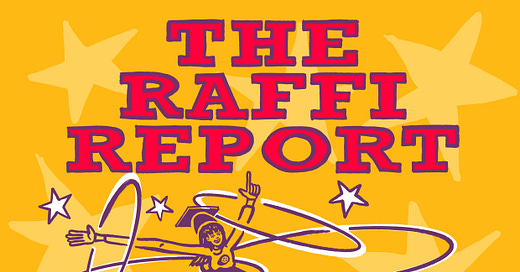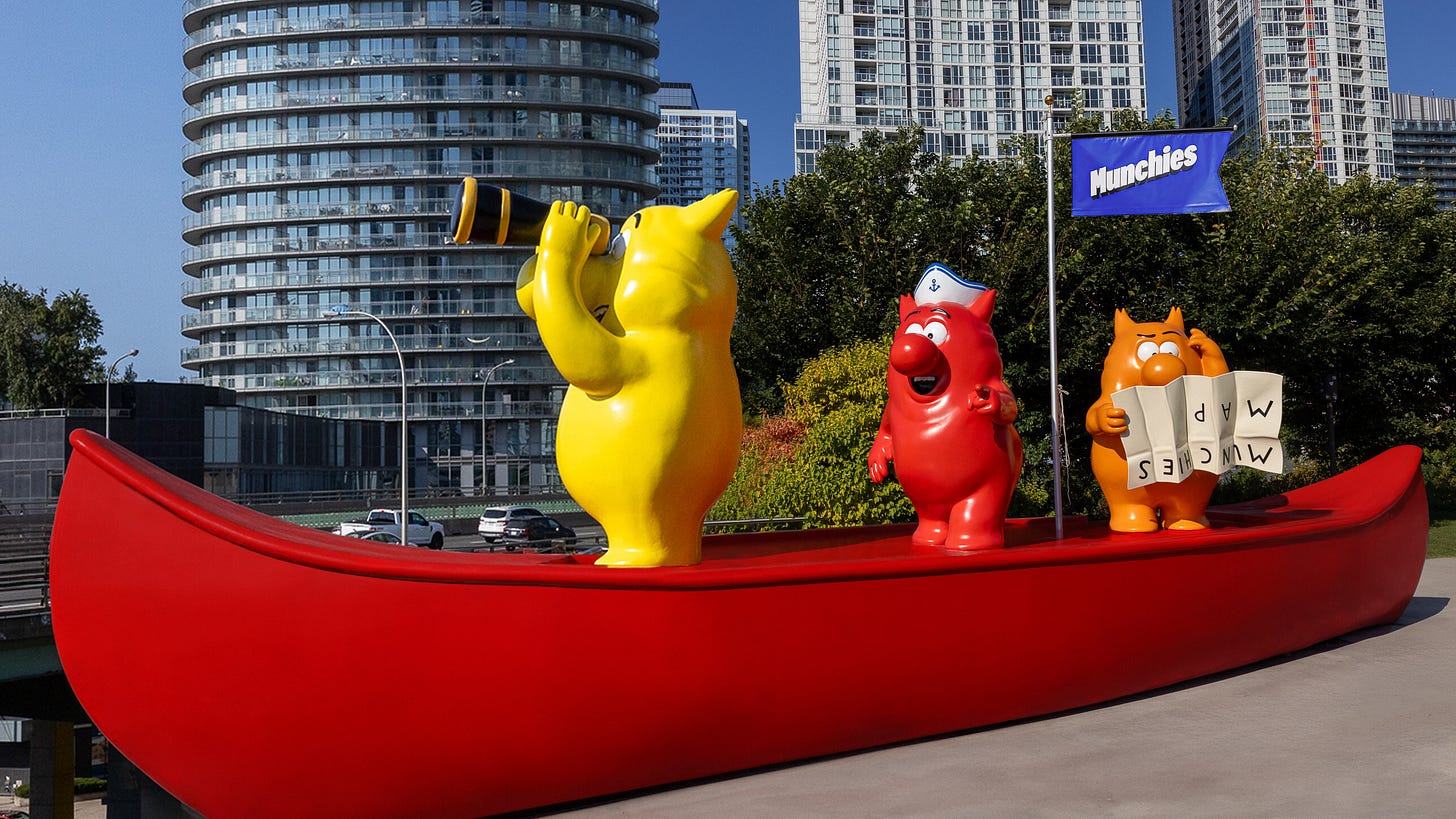The Raffi Report - w/c 30th June 2025
The five best Marketing-related nuggets across my desk this week
Welcome to the latest edition of The Raffi Report!
Greetings from (a very hot) London, England! Subscribe to The Raffi Report and each week you’ll get 5 nuggets a week (for free!) that will keep you at the bleeding edge of the Marketing industry.
ONE (if you want to understand why every airport feels identical, read this one)
The fact that airport food options are cookie-cutter isn't accidental—it's strategic. Licensers everywhere from JFK, to LHR, to CDG, prioritize creature comforts flow over distinctive character, leading to the eery experience of walking through what feels like the same terminal regardless of your destination.
The psychology behind this is cool from a brand perspective; especially if you’re in a crowded category. When everything looks the same, consumers feel a sense of predictability and safety, but you lose crucial differentiation opportunities.
As the MSN article puts it:
If there’s homogeneity in airport restaurants — and Weddig was loath to concede that it might exist — then it’s “more about giving the customers what they want than it is about who’s operating it,” he said.
TWO (if you want to see a disrupted narrative around attention, read this one)
This one is a real zag versus popular opinion right now but the facts are so:
Songs are also getting longer. The top ten hits on Billboard actually increased twenty seconds in duration last year. Five top ten hits ran for more than five minutes, and YouTube videos over 20 minutes have exploded from 1.3 million to 8.5 million uploads in just two years.
This contradicts the "social media is destroying attention spans" narrative. Instead, we're seeing a barbell effect: people either want ultra-short dopamine hits or deep, immersive experiences. The middle ground is disappearing.
So if you’re a Marketer, as a rule of thumb, it’s got to be snackable or you have to go deep, like Predictive History…
THREE (if you want to understand the relationship between student debt and spending, read this one)
This has been in the water if you speak to both consumers and bean-counters inside brands…
But money is tight right now: roughly 31% of borrowers are at least 90 days past due, according to data from TransUnion, marking the highest delinquency rate since 2012. That's 5.8 million Americans who've essentially stopped paying their student loans.
Not great news for non-essential branded goods that are all in on Gen Z… That might win you Cannes Lions awards but maybe Millennials will win you a promotion?
FOUR (if you want to see physical games making a comeback, have a look at this one)
Tim Ferriss (who is an author, podcaster, plus serial start-up investor, among many other things!) just launched "Coyote" a physical card game that's gaining serious traction.
Premise is super simple: Each card has an action on it. You lay out a line of cards and take turns performing them. You can then add cards to sabotage the other players. Mess up the sequence, and you're out.
What’s interesting to me is how digital-native creators are pulling 180s and launching physical products.
Mr Beast got there first, unsurprisingly, and this piece in The Verge is worth a long read, but in sum it’s all about “MrBeast transforming himself from the biggest YouTube star to a CPG mogul.”
FIVE (if you want to see nostalgia marketing's next evolution, take a look at this one)
Per FoodDive:
“About 15,000 new food products are introduced each year, according to Kansas State University, though the majority fail to take off. Some studies estimate 90% of new products launched meet their demise within the first 12 months.”
In this crazily competitive market, big CPG beasts are taking a different tack: going back to the future, with multiple businesses (from McD’s to Dunkaroo) re-launching old products. But this isn't just about going back to the future—it's about mining emotional equity that brands already spent decades building. Why create new brand affinity when you can resurrect existing love?
We had the pleasure at Passionfruit of working with PepsiCo to relaunch Munchies in Canada: and what was clear was that once discontinued products carry zero negative associations (people only remember the good parts) while benefiting from scarcity-driven desire.









